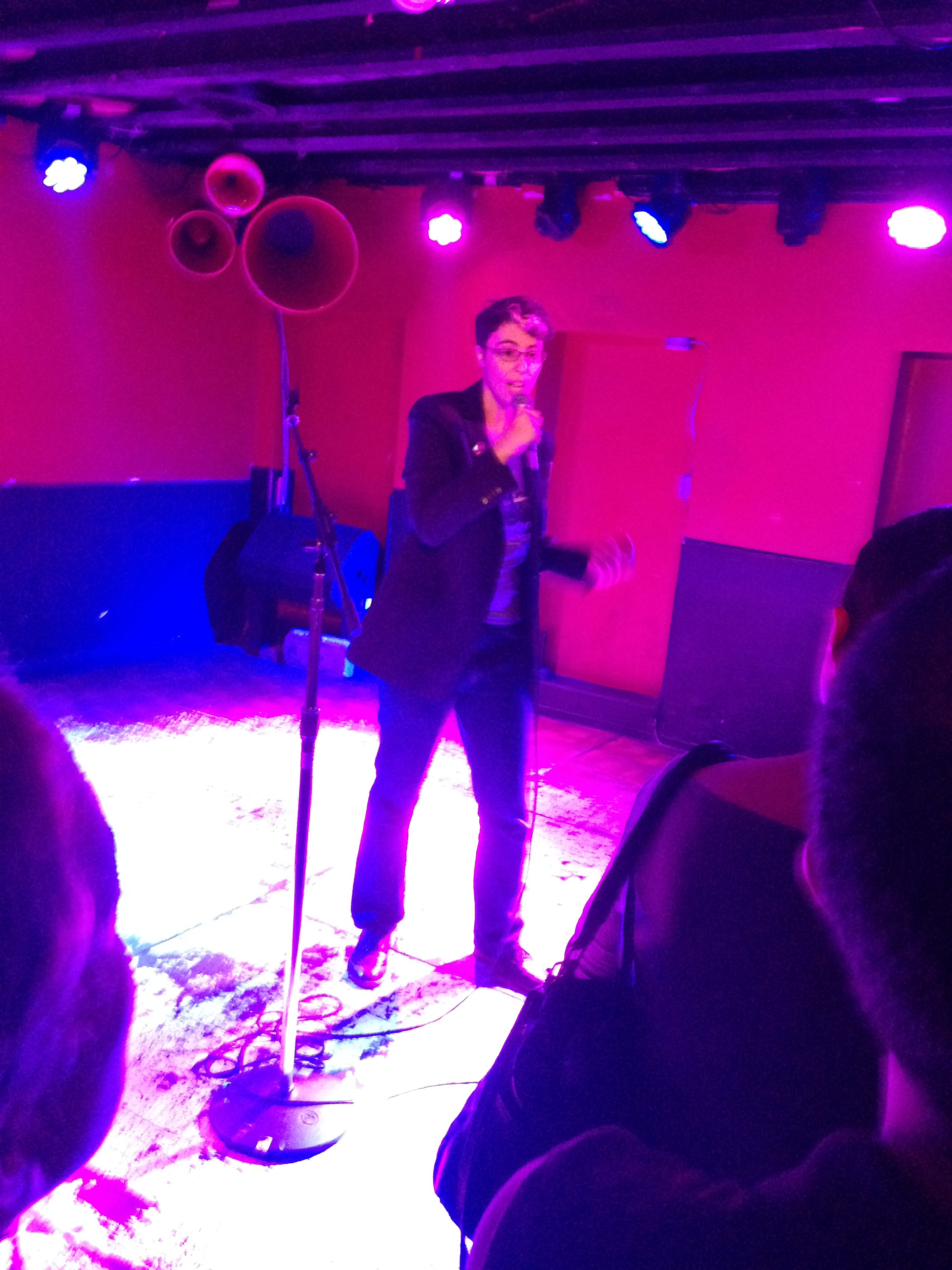8 April 2016
Science stories, not science talks
Posted by Shane Hanlon
By Shane M. Hanlon

Me & co-host Farah Ahmad at The Story Collider last month in DC. Photo credit: The Story Collider
“True, personal stories about science.” That’s the tagline of The Story Collider (TSC), a science storytelling organization that hosts events all across the country (and in the UK) and produces a weekly podcast. Full disclosure – I’m a DC producer and co-host of the show; however, the goal of this post is not promotion. Rather, we in Sharing Science want to draw attention to organizations and events like TSC that are on a mission to make science more accessible to the public, sometimes by directly involving the public.
As I’m most familiar with TSC, I’ll start there. Last year, I had the opportunity to tell a story for TSC as a National Academies Mirzayan Science & Technology Fellow at the Koshland Science Museum. The show was five fellows telling stories about science, from the story of our professional journey, to wild field experiences, to growing up as a triplet. We didn’t focus on our research; we focused on how science touched our lives. That’s the goal of TSC and is why the TSC staff and those who tell stories are scientists and non-scientists alike. Storytelling is perhaps one of the most powerful ways to convey a message, even though it is consistently overlooked by scientists who are trying to relate to non-scientists. With TSC there’s a storyteller, a mic, and an audience – it’s all about message.
A slightly different venture with a similar goal to TSC is Nerd Nite. Nerd Nite brings together scientists and other subject experts to (primarily) talk about their research to a roomful of individuals with broad personal and professional backgrounds. I’ve attended the one in DC a few times and they’re incredible. Picture an oral session at a conference, except it’s being held at a cafe or bar, the attendees are standing two meters away from you and regularly ask questions and interact with you in the middle of your talk, and your Power Point doesn’t contain any jargon (yes, there is still a Power Point). Nerd Nite talks are usually more technical then TSC stories, which is by design, but they provide a great service in connecting the public to actual research and researchers.

Olivia Ambrogio, AGU Sharing Science Program Manager and biologist, gives a talk on the sex lives of invertebrates at Nerd Nite D.C. Photo by Annie Neary.
TSC and Nerd Nites are (inter)national, staffed organizations. While they lower the barrier for understanding and inclusion in science, their structure of being in limited cities (though they do travel!) prevents universal access. That’s where events such as science cafes or Science on Tap/Pub Science -like events are incredibly useful. While each event takes on its own unique character, what’s great about these events is that they are (relatively) easy to organize and flexible in structure. For example, the next DC Science Cafe will focused on, “…songs, poetry, rap, comedy and other favored forms of expression in an on-stage demonstration of just how well art and science go together.” Previous events focused on conservation, photons and light, and science in Iran, just to name a few. These type of events are fantastic opportunities to bring in an audience that you, as a scientist, normally wouldn’t have (and you may get some folks to wander in who just happen to be at the cafe/bar).
Whether you’re telling a story about how science has affected your life, giving a non-traditional research talk, or just looking to chat with non-scientists about your research over a coffee or beer, there are many different ways to engage with diverse audiences. If you’re interested in an event like one of these, check to see if there is something already in your area. As always, for any tips/suggestions, you can always reach us at [email protected] and happy storytelling!
-Shane M. Hanlon is an AGU Sharing Science Specialist










 The Plainspoken Scientist is the science communication blog of AGU’s Sharing Science program. With this blog, we wish to showcase creative and effective science communication via multiple mediums and modes.
The Plainspoken Scientist is the science communication blog of AGU’s Sharing Science program. With this blog, we wish to showcase creative and effective science communication via multiple mediums and modes.